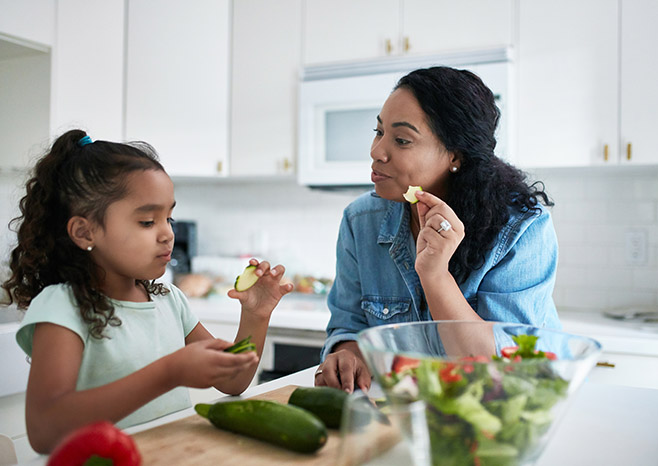
Nutrition Tips for Growing Kids
Feeding kids what they want to eat and what they need to grow and stay healthy can be challenging. They’re notoriously picky, tend to dislike vegetables or anything else they perceive as nutritious, and their tastes change frequently. What they love one week, they won’t touch the next. Because they’re typically so active and are constantly growing, their caloric and nutritional needs are somewhat different from that of adults, but how?
Counting Calories
Generally speaking, the daily caloric intake is based on age, size, and activity level. For example, a toddler needs about 1,000 – 1,400 calories a day, regardless of gender. Older kids up to teens, depending on the amount of exercise they get, need anywhere from 1,200 for an eight-year-old girl to a whopping 3,200 for a 15-year-old boy!
What to Eat
Kids need the same foods adults do, just in different quantities. Every day, your child should be served the appropriate amounts of protein, fruits, vegetables, grains, and dairy. These foods can take many forms, for example, protein can mean meat, poultry, soy products, fish, eggs, beans, nuts, seeds, or peas.
Fruits and vegetables are best eaten fresh, but can be frozen, dried, canned, or even juiced, as long as the label says 100% juice and no sugar is added. Fruits, especially when dried, can pack a caloric punch, so be sure to read the label before doling it out.
Dairy products are everything from milk and yogurt to cheese and even soy beverages. It’s best to stick to the low fat or fat-free varieties because fat is very high in calories.
Try to limit white bread, white rice, and regular pasta when feeding your kids grains. Instead choose whole grain options, and offer popcorn, oatmeal and quinoa. Grains are easy to incorporate into baked goods and meatballs if you have picky eaters.
You should try to avoid sugar, saturated fats and trans fats. Also, find ways to add healthy oils like canola, olive and avocado, which provide essential fatty acids and vitamin E.
Feeding your kids the nutrients their growing bodies and brains need will help them to be well and reach their potential, physically and intellectually. It will also teach them the habit of healthy eating, which will benefit them for life.




